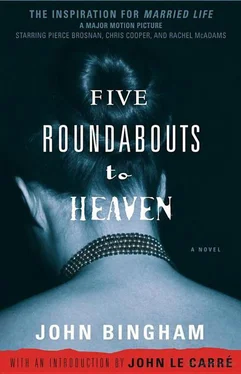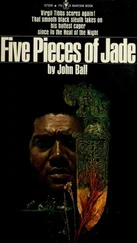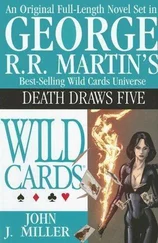John Bingham - Five Roundabouts to Heaven
Здесь есть возможность читать онлайн «John Bingham - Five Roundabouts to Heaven» весь текст электронной книги совершенно бесплатно (целиком полную версию без сокращений). В некоторых случаях можно слушать аудио, скачать через торрент в формате fb2 и присутствует краткое содержание. Жанр: Криминальный детектив, на английском языке. Описание произведения, (предисловие) а так же отзывы посетителей доступны на портале библиотеки ЛибКат.
- Название:Five Roundabouts to Heaven
- Автор:
- Жанр:
- Год:неизвестен
- ISBN:нет данных
- Рейтинг книги:4 / 5. Голосов: 1
-
Избранное:Добавить в избранное
- Отзывы:
-
Ваша оценка:
- 80
- 1
- 2
- 3
- 4
- 5
Five Roundabouts to Heaven: краткое содержание, описание и аннотация
Предлагаем к чтению аннотацию, описание, краткое содержание или предисловие (зависит от того, что написал сам автор книги «Five Roundabouts to Heaven»). Если вы не нашли необходимую информацию о книге — напишите в комментариях, мы постараемся отыскать её.
Five Roundabouts to Heaven — читать онлайн бесплатно полную книгу (весь текст) целиком
Ниже представлен текст книги, разбитый по страницам. Система сохранения места последней прочитанной страницы, позволяет с удобством читать онлайн бесплатно книгу «Five Roundabouts to Heaven», без необходимости каждый раз заново искать на чём Вы остановились. Поставьте закладку, и сможете в любой момент перейти на страницу, на которой закончили чтение.
Интервал:
Закладка:
He pictured the scene on his return. In his hand would be the new bottle, the label suitably rubbed to take away its freshness; by the bedside, the old bottle which had contained the altrapeine. He replaces it with the new bottle. Now he is standing there with the other one in his hand. Within a few minutes he must telephone the doctor, who might be on the scene in a quarter of an hour; perhaps less.
Bartels sat down on the edge of the bath and tried to think clearly. You had to guard against the time factor in these things; more, the time factor, combined with an unfortunate coincidence, with the unforeseen: the thing which upset your plans and sent you to the gallows. But how could you guard against something which you could not foresee?
He shook his head impatiently. He was getting abstruse. He must confine himself to difficulties which were real. There were enough of them.
Again he visualized the scene, again saw himself standing there with the bottle in his hand: Philip Bartels, with an incriminating article in his hand; and a telephone nearby which he would have to use at once; and a doctor who would be arriving at any moment.
But the Philip Bartels he saw wasn’t moving. He was standing still, his brain bewildered by the problem. Now fear was forming in his mind; and panic.
He came back to reality with an effort, took a turn up and down the bathroom; then sat down again and compelled his mind to think calmly. He began to analyse the problem, step by step, beginning with the simplest facts.
He had only two places in which to hide the thing: outside the house or inside.
Was it practical to remove the bottle from the house?
No. It was not.
Why? What’s wrong with that?
Because a nosy neighbour might see him throwing it in a street refuse-basket, and connect the action with any later development.
But why not take it out of the house and drop it in the Thames or the Serpentine? That’s safe, surely?
No, it isn’t. It’s even more silly.
Oh? Why?
Because, you fool, they would be able to tell very accurately the time at which Beatrice died. If you were seen to arrive after her death, and to leave the house again a few minutes later, and not return for some time, and if you still had not telephoned the doctor, you would be in a spot, wouldn’t you? Some of the questions you would have to answer about that little excursion would be a bit difficult, wouldn’t they?
But surely the neighbours, if they saw you at all, would later think that you had gone to fetch the doctor personally?
Plain wishful thinking. They might think it, or they might not: supposing a man taking his dog out saw you go out alone and return alone? And he, or somebody else, saw the doctor arrive later, by himself? And the two knew each other, or Dr Anderson knew one or the other, or both, or treated them professionally, or treated their wives or their children, or the whole dam’ lot?
Things could leak out that way, couldn’t they?
Better not take the bottle out of the house. Not that night, anyway. The following day, yes. But not that night.
So it will have to stay in the house.
Where?
Well, anywhere, really. Anywhere out of the sight of Dr Anderson. In a cupboard in the kitchen, perhaps. Or in a drawer somewhere. A drawer in the writing bureau. That’s it. Dr Anderson will sign the death certificate and go, and that will be that: coronary thrombosis, that’s what he would diagnose. That’s what the medical book said.
Bartels got up from the side of the bath. The problem seemed to be solved. He was about to leave the bathroom when he stopped dead.
But would that be the diagnosis? The phrase in the book ran: “The circumstances of death are to all intents and purposes similar to those associated with coronary thrombosis.”
To all intents and purposes? What was meant by that? Were there, in certain cases, symptoms which could raise even the smallest doubt? Complexion, for instance; or the age factor?
Supposing Dr Anderson did not at once diagnose thrombosis of the heart? He was a cautious old stick; unhurried, methodical, and pig-headed. A death certificate could be a dangerous thing to a doctor; wrongly given, it could damage his reputation. Bartels, a layman, could say nothing to put the idea of thrombosis into the doctor’s head. Anderson would have to come to his own conclusions in the matter.
He wouldn’t suspect murder, of course. That was out of the question.
But suicide? What if he suspected suicide?
Bartels, his head pressed against the bathroom door in an effort to concentrate, imagined Dr Anderson leading him into the drawing room. Imagined him speaking:
“Not entirely satisfied…presume your wife had nothing on her mind?…No, no, not as far as you are aware…of course not, of course not, highly improbable…nevertheless…stresses and strains of modern life…terrible wear and tear on the nerves, Mr Bartels…odd, unaccountable things do happen…case in the paper the other day…have to be so careful, you know…feel sure you won’t mind if…another opinion…set my mind at rest…police surgeon…accustomed to things…purely a formality, of course…headaches might have unduly distressed her…possibility that Mrs Bartels did not wish to embarrass you…her last thoughts not to create a scandal…police surgeon…yes, Mr Bartels…if you don’t mind…just use your telephone?”
The police car, black, smoothly purring, sinister, would draw up outside. The police surgeon would come in, accompanied by a sergeant and a constable. Questions, questions, questions.
Your name? Your wife’s christian names? Age? All the rest of it.
While the doctors conferred, the sergeant and constable would be talking to you; polite, deferential, formally sympathetic.
Would you have any objections if they just looked around the flat while they were waiting? A search? Oh, no. Just look around. Just in case “the unfortunate lady may have had a nervous breakdown, sir.”
No, sir. Of course not, sir. Most unlikely, sir.
Nevertheless, if you don’t mind, sir.
We won’t make the place untidy, sir.
It won’t take long, sir.
Perhaps you could do with a cup of tea, sir?
That’s right, sir, sit down there, we’ll bring you one. You can drink it while we’re having a quick look around.
A quick look around. But it would be a search just the same. By experienced, observant men. First the medicine cupboard, of course. Nothing there, nothing of interest there. Then the bedroom: the cupboard in the bedside table, the bottles on the mantelpiece-lotions, perfumes, and the rest. Then the dressing table, and its drawers. Then the kitchen. Nothing there, either.
Then the drawing room.
The bureau. The bureau drawers.
Did your wife suffer a lot from indigestion, sir? Did she usually keep her old stomach-powder bottles?
Can you think of any reason why she should keep one among her boxes of writing paper, sir?
Sniff, sniff. No smell, of course. Nothing suspicious at all. Just the usual small amount of white powder in the bottom of the bottle.
We’d better just take it along, sir. You don’t mind, do you, sir?
Altrapeine, that’s what the analysis would show. What woman, what normal housewife would think of committing suicide by taking such a comparatively unknown drug as altrapeine. And if his love for Lorna Dickson became known-“association,” the police would call it-what then?
What then, indeed.
For a few moments Bartels found the problem of the disposal of the bottle the same night too baffling to solve. He stood in the bathroom, staring at the locked door, while the idea grew in his mind that he would have to abandon the whole thing.
It was too risky.
There was not only himself to consider. Lorna would be involved. She would certainly be investigated: the police never forgot the Thompson-Bywater case. Word would get round, that was quite certain. It always did. At the best, her business would be ruined, and she would have to leave the district. Start afresh somewhere else, on practically nothing.
Читать дальшеИнтервал:
Закладка:
Похожие книги на «Five Roundabouts to Heaven»
Представляем Вашему вниманию похожие книги на «Five Roundabouts to Heaven» списком для выбора. Мы отобрали схожую по названию и смыслу литературу в надежде предоставить читателям больше вариантов отыскать новые, интересные, ещё непрочитанные произведения.
Обсуждение, отзывы о книге «Five Roundabouts to Heaven» и просто собственные мнения читателей. Оставьте ваши комментарии, напишите, что Вы думаете о произведении, его смысле или главных героях. Укажите что конкретно понравилось, а что нет, и почему Вы так считаете.












